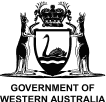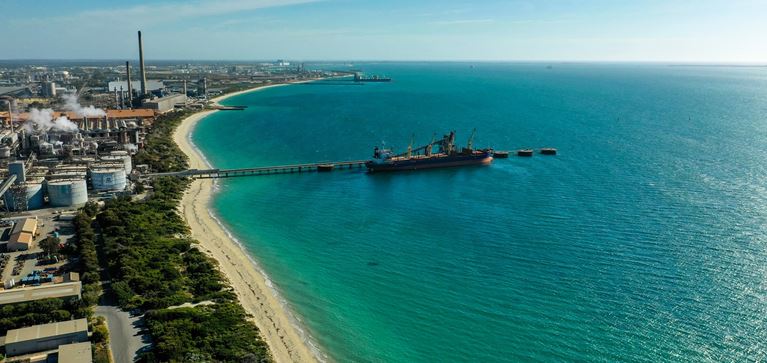Westport has partnered with the Western Australian Marine Science Institution (WAMSI) to deliver the $13.5 million WAMSI-Westport Marine Science Program. This 3-year program is developing the latest data, information and modelling on the complex environmental systems and community values associated with Cockburn Sound.
Project 3.3: review of surface water drains and likely maximum influxes to Cockburn Sound
Project Theme: Water and sediment quality
Researchers: E Bekele, M Donn, G Davis, J Rayner, Furness A
Publication date: December 2023
Understanding surface water and max influxes into Cockburn Sound
Cockburn Sound, adjacent to the Kwinana Industrial Area and the Cities of Kwinana, Cockburn, and Rockingham, has for decades been exposed to the run-off of stormwater drains, wastewater, cooling water and process water from industrial activities.
While regulations, including the State Environmental (Cockburn Sound) Policy 2015, are in place to manage industrial run-off into the Sound, there had been no recent review into the volume and quality of stormwater run-off, which can contain groundwater and nutrients like nitrogen and phosphorous that can impact the marine eco-system.
This study sought to address this knowledge gap by reviewing potential outlets into Cockburn Sound, the likely volume of run-off and the quality of the water that was entering the Sound.
Field surveys identified 14 stormwater and 8 ocean outlet drains as opening into the Sound or its shoreline in the City of Rockingham and Kwinana, and 8 stormwater drains near industrial sites. The review included the type of drain, typography of the surrounding area, and likely run-off source, such as vegetation or roads.
Estimations around the rate of flow or flux were also made, by reviewing previous data and taking samples following a major rainfall event at two of the stormwater drains.
Westport will use this report, and the following research into stormwater and nutrient run-off to create a benchmark for stormwater flows into Cockburn Sound. This benchmark will provide a starting point for the ongoing improvement of managing stormwater flows in the area, to be used by local government and industries, with the objective of improving the long-term health of Cockburn Sound.
What the report found:
- Surface water run-off from industrial sites has reduced over the past 50 years.
- Water fluxes, multiplied by maximum nutrient concentrations, are less than 0.1 tonnes a year, less than earlier estimates.
- Water quality data for these sources is limited and cannot be accurately estimated on the current information available, with further sampling recommended.
This report represents the first of several studies under the WAMSI-Westport Marine Science Program considering the water quality of Cockburn Sound, and how this is impacted by surface water inputs.
You can read the full report here.





